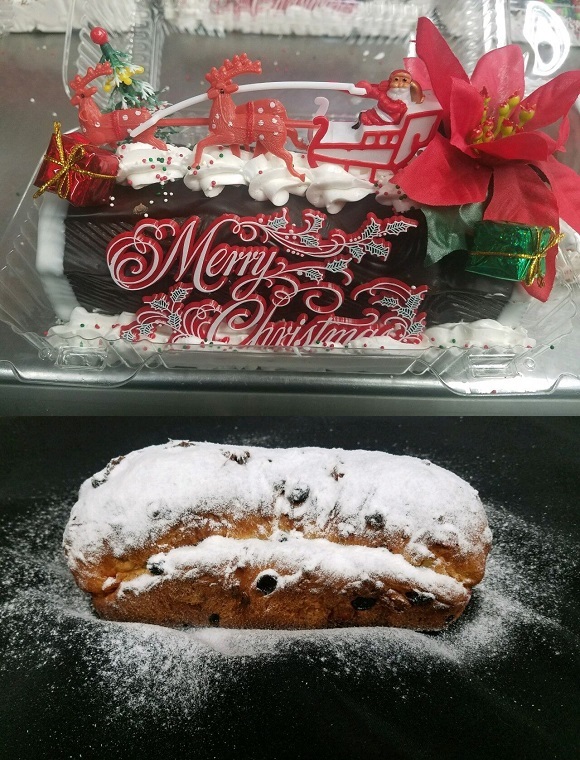The Yule Log
The Yule Log is a tradition that dates back to Iron Age Europe, prior to the Medieval era. Back then Celtic, Gaelic and other groups of pagans would burn huge logs adorned with spices, holly and pine cones to welcome the end of the winter solstice. They believed that the smoke cleansed their dwellings and the that the ashes held certain powers such as protection from lightning and other potential dangers.
With the rise of Christianity, the Yule log tradition continued, However, on a smaller scale. Families may have burned a log on Christmas Eve, but smaller hearths became commonplace so burning huge logs was no longer practical. Those small hearths, however, were perfect for something else, baking cakes! Lord only knows who made the first Yule log cake but judging from the ingredients it was probably as early as the 1600’s! Marzipan and meringue decorations, two classic ingredient choices for Yule logs, appeared on many a medieval table. Sponge cake, which is used as the base of the log, is one of the oldest cakes still made today. There is a recipe dating back to 1615 and can be found in Gervaise Markham’s tome “The English Huswife.”
You may find Yule Logs at Continental Bakery on Grand Ave in Maspeth. Dean and his crew prepare their version as a thin vanilla sheet cake, lathered with a delicious chocolate buttercream and then rolled into a log. It gets an icing of chocolate ganache and is festively decorated. Continental’s Yule Log is sure to make your spirits that much brighter this Christmas!
Traditional German Stollen Bread
This delectable Christmas treat dates back to 15th century Dresden, Germany. It is designed to symbolize the infant Jesus, wrapped in swaddling clothes. Stollen is traditionally baked during Advent, the days of preparation for the celebration of the Nativity of Christ.
The original Christollen bread was a simple cake made of flour, yeast, oil and water. That is a far cry from the Stollen that we know and love today! When I visited Continental Bakery, Dean walked me through the ins and outs of producing this irresistible and unique treat. The Stollen we know today is a bread. It is a traditional German treat made with candied fruit, raisins, diced almonds and Pecans. The bread itself is made with a mix of flour, water, butter, salt and other spices. Once baked the Stollen is dusted with powdered sugar.
Things like this as small as they seem really are a part of our culture and heritage. It’s a blessing that we still have these ancient traditions alive today and it’s even more of a blessing that people like Dean get up every day and continue to carry on the traditions of the old world. Through their hard work and dedication to their craft, people like the great folks of Continental, Russo’s, Panepinto and Palermo Bakeries, Glendale Bake Shop, and many others, we can literally go and touch, taste and smell our heritage and history. The longer I live the more I can say that there is no place like home for the holidays! This season as we prepare to celebrate with our families and loved ones, make it a point to visit and support our local bakeries, delicatessens, butcher shops and retailers to help make your celebrations an even sweeter success.
God bless you all. Merry Christmas and Happy New Year!



